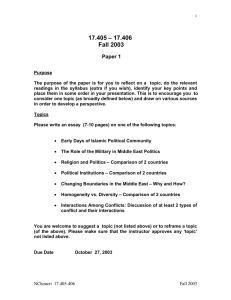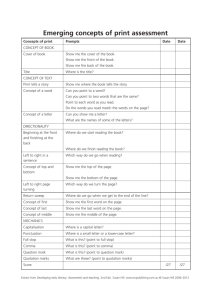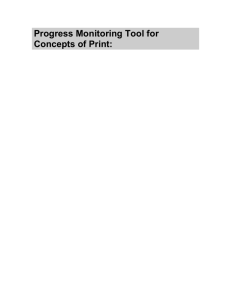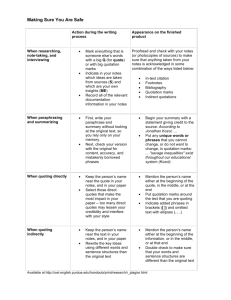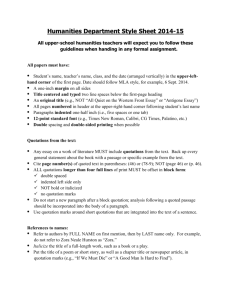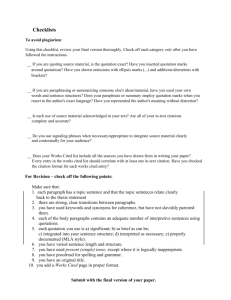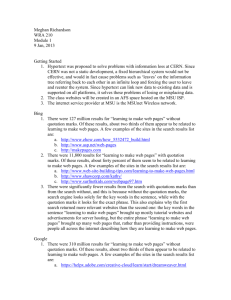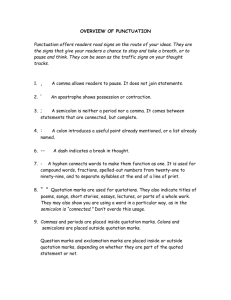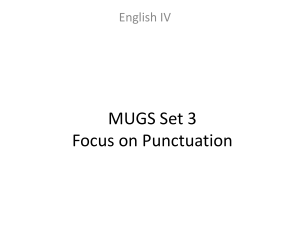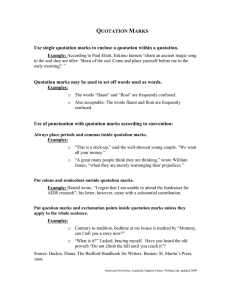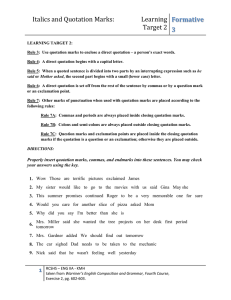Mistakes Made Frequently in Student Papers (Try to avoid them)
advertisement
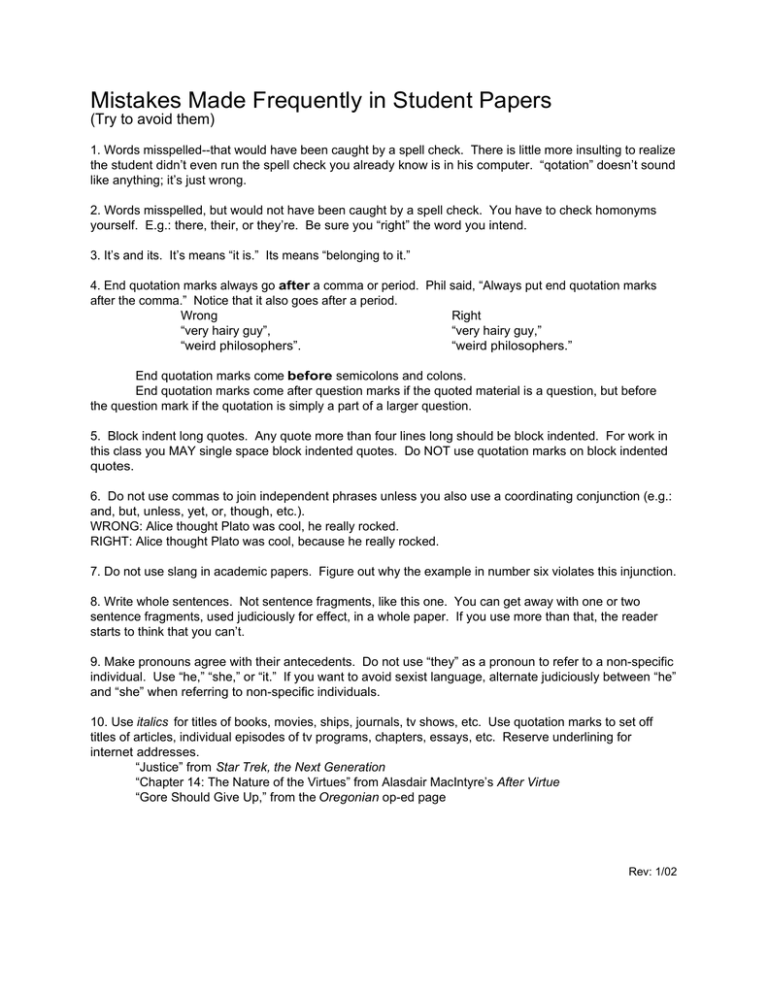
Mistakes Made Frequently in Student Papers (Try to avoid them) 1. Words misspelled--that would have been caught by a spell check. There is little more insulting to realize the student didn’t even run the spell check you already know is in his computer. “qotation” doesn’t sound like anything; it’s just wrong. 2. Words misspelled, but would not have been caught by a spell check. You have to check homonyms yourself. E.g.: there, their, or they’re. Be sure you “right” the word you intend. 3. It’s and its. It’s means “it is.” Its means “belonging to it.” 4. End quotation marks always go after a comma or period. Phil said, “Always put end quotation marks after the comma.” Notice that it also goes after a period. Wrong Right “very hairy guy”, “very hairy guy,” “weird philosophers”. “weird philosophers.” End quotation marks come before semicolons and colons. End quotation marks come after question marks if the quoted material is a question, but before the question mark if the quotation is simply a part of a larger question. 5. Block indent long quotes. Any quote more than four lines long should be block indented. For work in this class you MAY single space block indented quotes. Do NOT use quotation marks on block indented quotes. 6. Do not use commas to join independent phrases unless you also use a coordinating conjunction (e.g.: and, but, unless, yet, or, though, etc.). WRONG: Alice thought Plato was cool, he really rocked. RIGHT: Alice thought Plato was cool, because he really rocked. 7. Do not use slang in academic papers. Figure out why the example in number six violates this injunction. 8. Write whole sentences. Not sentence fragments, like this one. You can get away with one or two sentence fragments, used judiciously for effect, in a whole paper. If you use more than that, the reader starts to think that you can’t. 9. Make pronouns agree with their antecedents. Do not use “they” as a pronoun to refer to a non-specific individual. Use “he,” “she,” or “it.” If you want to avoid sexist language, alternate judiciously between “he” and “she” when referring to non-specific individuals. 10. Use italics for titles of books, movies, ships, journals, tv shows, etc. Use quotation marks to set off titles of articles, individual episodes of tv programs, chapters, essays, etc. Reserve underlining for internet addresses. “Justice” from Star Trek, the Next Generation “Chapter 14: The Nature of the Virtues” from Alasdair MacIntyre’s After Virtue “Gore Should Give Up,” from the Oregonian op-ed page Rev: 1/02
